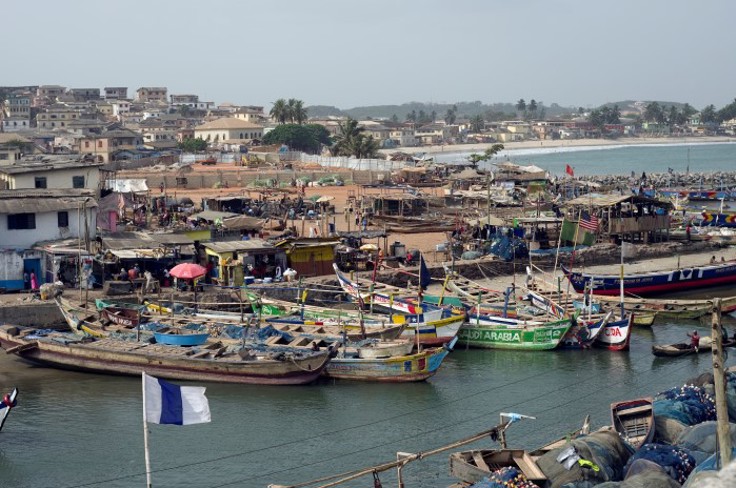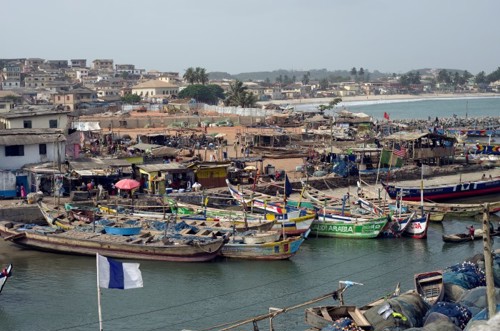The Global Health Preparedness Programme in Ghana
Article
|Updated
The Global Health Preparedness Programme (GHPP) in Ghana included implementation of several IHR assessment frameworks; Joint External Evaluation (JEE), simulation exercises and developing their National Action Plan for Health Security (NAPHS). It also included capacity building with exchange of expertise and knowledge generation.
The Republic of Ghana
The Republic of Ghana is located along the Atlantic Ocean in West Africa and is a middle-income country as defined by the World Bank. According to the Ghanian ministry of health, the Ghanian healthcare system has made a steady progress in providing an equitable access to health care for its population1. The collaboration between the Norwegian Public Health Institute (NIPH) and Ghana has been varied and engaging. It started with the GHPP and has continued to include various health technology assessment health technology assessment (HTA) implementations. The GHPP was designed to contribute to global efforts of implementing the International Health Regulations (2005) (IHR) worldwide.
The Norwegian Institute of Public Health (NIPH) has collaborated closely with Ghana Health Services, University of Ghana and the World Health Organization’s (WHO) Country office. In partnership with other organisations, NIPH participated in performing Ghana’s first IHRMEF of Joint External Evaluation (JEE) that assessed the country’s ability to implement the core capacities of the IHR2005. The outcomes of JEE served as a road map to prioritise and stratify GHPP’s implementations.
Key elements for collaboration between NIPH, the Ghana Health Services and the World Health Organization’s (WHO) Country office were identified:
- Implementing a new version of Integrated Disease Surveillance and Response (IDSR).
- Supporting the development of the national chemical preparedness plan.
- Collaboration on developing or adapting a rapid risk assessment tool for chemical events and contribute to simulation exercises to test the tool.
- Support development of an Environmental Health module to the Field Epidemiology Training Programme (FETP) in Ghana, focusing on chemical hazards.
- Collaborating on improving event-based surveillance in Ghana, with an emphasis on how to coordinate the vertical reporting lines of events in chemical preparedness, food safety and health, and to promote systematic sharing of data between the relevant sectors.
Achieved results
Applications of Field Epidemiology Training Programme developed in collaboration with NIPH included chemical, One Health, climate change and COVID-19.
– Dr Ernest Kenu, Professor at the University of Ghana and director of Ghana field epidemiology and laboratory training programme, Ghana.
A Joint External Evaluation was conducted in 2016 and was a starting point, followed by investing in activities in prioritised topics like supporting developing a national chemical preparedness plan, event-based surveillance, and a risk communication plan, in addition to reviewing all organisational structures, Standard Operation Procedures (SOPs), and communication channels. The GHPP assisted in developing a Ghanaian National Action Plan for Health Security (NAPHS). Furthermore, the project supported the implementation of an Integrated Disease Surveillance and Response for chemical events that was further developed and used for COVID-19 management.
End user experience
The hallmark of our collaboration with the Norwegian Institute of Public Health has been to generate knowledge and to develop national competences needed to leverage preparedness in Ghana.
– Dr Ernest Kenu
The GHPP project had assisted Ghana in:
- Developing an educational curriculum of Field Epidemiology Training which would help to develop their national competences of field epidemiologists.
- This curriculum is currently applied for mitigating the pandemic, in term of contact tracing application.
- Sharing expertise with two field epidemiologists which assisted Ghana to efficiently investigate 2 public health events of One health (Dolphin death by the shores of Ghana) & chemical leakage event.
- These competences are now considered the national nucleus for establishing a national poison and chemical event centre at the Ghanaian ministry of Health.
Lessons learned
- National application of IHRMEF served to identify the most compelling bottlenecks, to handle them efficiently, and to follow up on the progress made during implementation.
- These identified bottlenecks should be prioritised and aligned based on national multisectoral collaboration to empower ownership and develop national competences.
- To capitalise on GHPP’s achieved outcomes, future twinning projects should be aligned with GHPP’s achievements, and we strongly recommend it to be discussed with other active donors to avoid overlap and increase sustainability.
Our invaluable partnership with the NIPH has yielded the development of a national centre for poison and chemical events at the Ghanaian ministry of health which is expected to last for years to come.
– Dr Ernest Kenu

